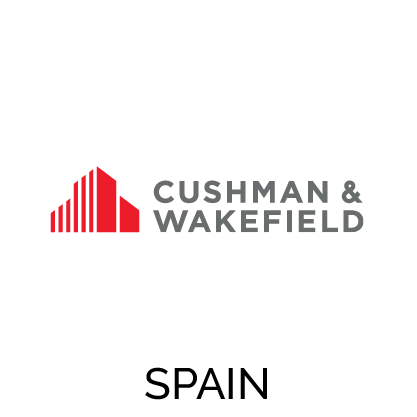Does Barcelona’s international image help or hinder long-term real estate investment? Do investors view the city as a stable and transparent real estate market? To debate this topic, Iberian Property hosted an Editorial Breakfast, with the support of Cushman & Wakefield, Barcelona Investment Office and Barcelona City Council, which took place on the 1st of October at the new C&W headquarters on Avenida Diagonal.
Under the theme “City’s role in foreign investment attraction,” investors shared their thoughts on how Barcelona’s unique characteristics shape investment strategies and market dynamics. The conversation delved into the weight of city branding, the impact of municipal regulation, and the broader perception of Barcelona’s competitiveness on the global stage.
Oriol Barrachina, CEO of Cushman & Wakefield in Spain, brought a measured but confident view. “Barcelona’s fundamentals are solid — talent, creativity, and a business culture that constantly adapts,” he said. “The perception of political risk belongs to the past. What matters now is how quickly we can transform and how consistently we tell our story.”
He pointed out that investors increasingly demand velocity and flexibility — two words that, in his view, must define the city’s next chapter. “When urban transformation takes too long, competitiveness suffers. Converting obsolete offices into new uses should be easier; it’s not only an economic issue but a social one. If we want more housing and sustainable buildings, the system needs to move faster.”
Throughout the debate, participants echoed his perspective: the challenge is not to rebuild confidence, but to match the pace of opportunity. In a market where investors seek adaptive, mixed-use spaces and resilient returns, agility becomes as critical as transparency.
Oriol’s conclusion was optimistic yet demanding. “Barcelona remains one of Europe’s most attractive cities to live and work. Here, offices are full — people want to come in, collaborate, and stay connected. That says a lot about the vitality of our market.”
The task ahead, he added, is to compete on quality, not on price: “Every year C&W produces a retail report of Main Streets Across the World, and I still don't conform with not seeing Barcelona among the top 10. With our architecture, our urban fabric and connectivity, we should be playing in the same league as international cities such as Milan or Paris.”
The shared sentiment in the room was that Barcelona’s future strength lies not only in its assets but in its capacity to align the public and private sectors around a common vision — one that balances growth, innovation, and quality of life.

